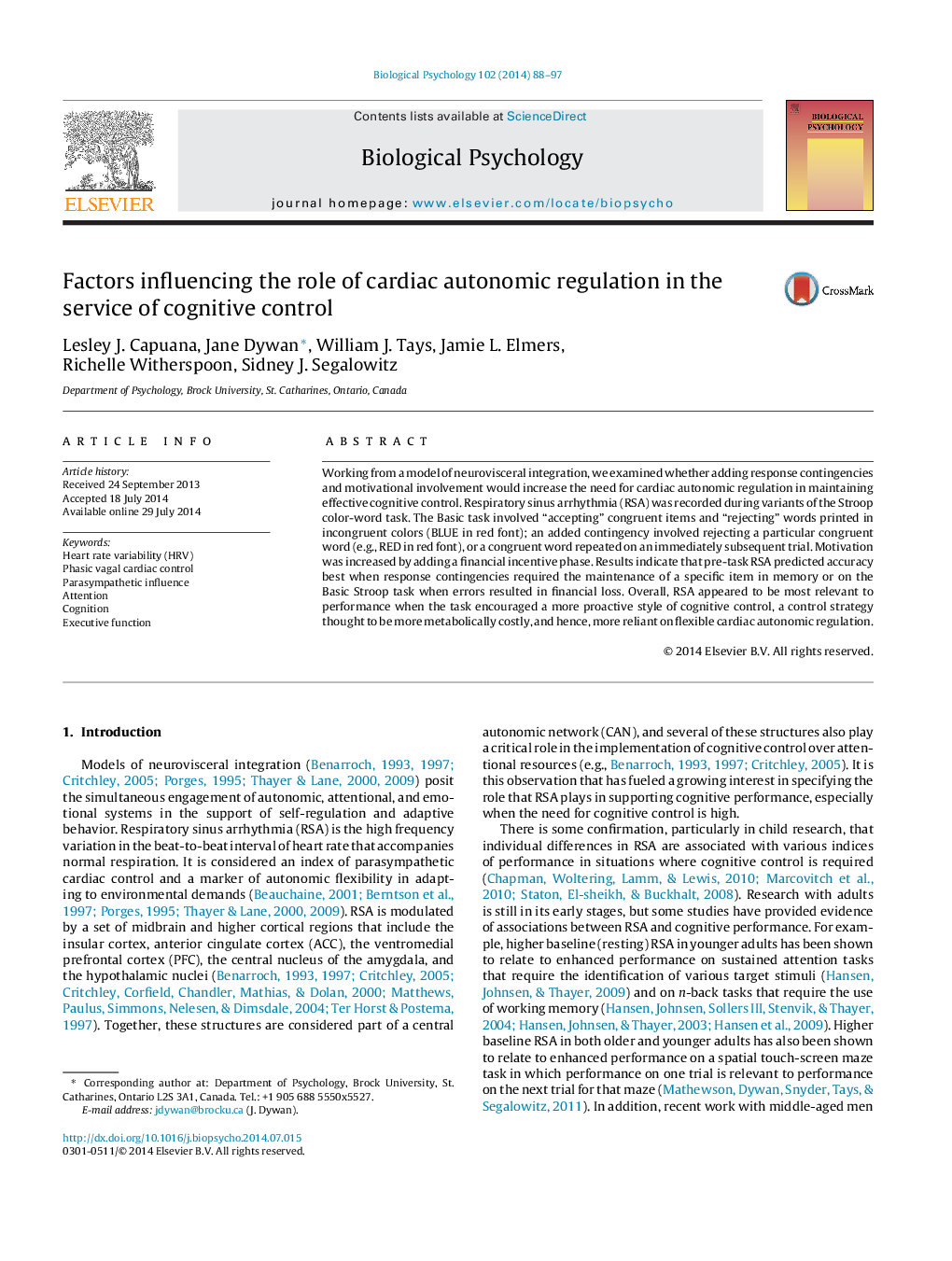| Article ID | Journal | Published Year | Pages | File Type |
|---|---|---|---|---|
| 920849 | Biological Psychology | 2014 | 10 Pages |
•We examined respiratory sinus arrhythmia's (RSA's) relation to cognitive control.•We varied response contingencies in a Stroop color-word task.•A monetary incentive was added to increase motivational involvement.•RSA was most related to performance when responses involved proactive control.
Working from a model of neurovisceral integration, we examined whether adding response contingencies and motivational involvement would increase the need for cardiac autonomic regulation in maintaining effective cognitive control. Respiratory sinus arrhythmia (RSA) was recorded during variants of the Stroop color-word task. The Basic task involved “accepting” congruent items and “rejecting” words printed in incongruent colors (BLUE in red font); an added contingency involved rejecting a particular congruent word (e.g., RED in red font), or a congruent word repeated on an immediately subsequent trial. Motivation was increased by adding a financial incentive phase. Results indicate that pre-task RSA predicted accuracy best when response contingencies required the maintenance of a specific item in memory or on the Basic Stroop task when errors resulted in financial loss. Overall, RSA appeared to be most relevant to performance when the task encouraged a more proactive style of cognitive control, a control strategy thought to be more metabolically costly, and hence, more reliant on flexible cardiac autonomic regulation.
